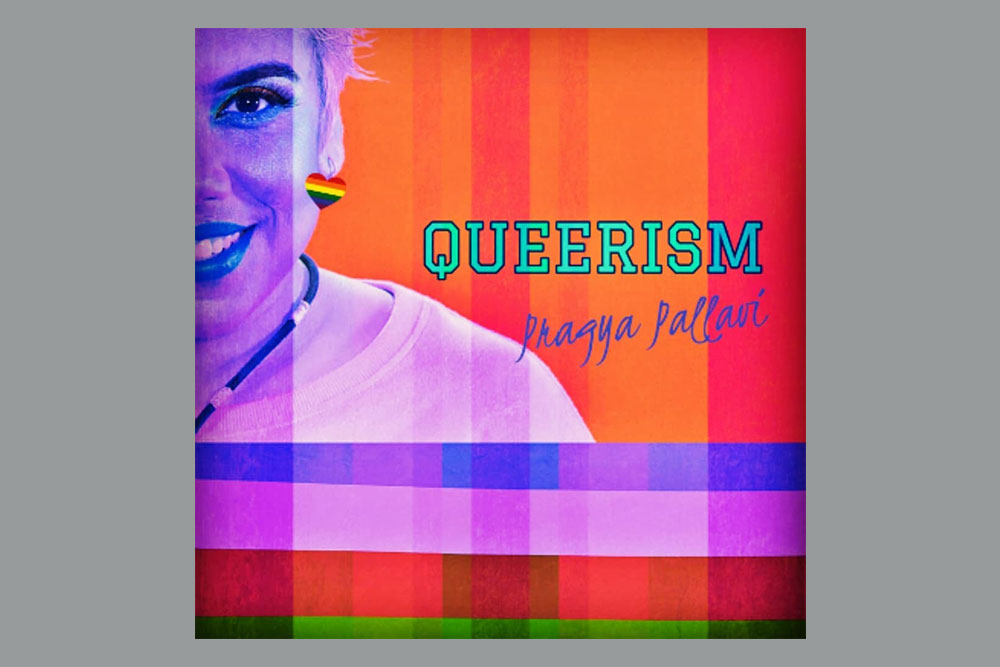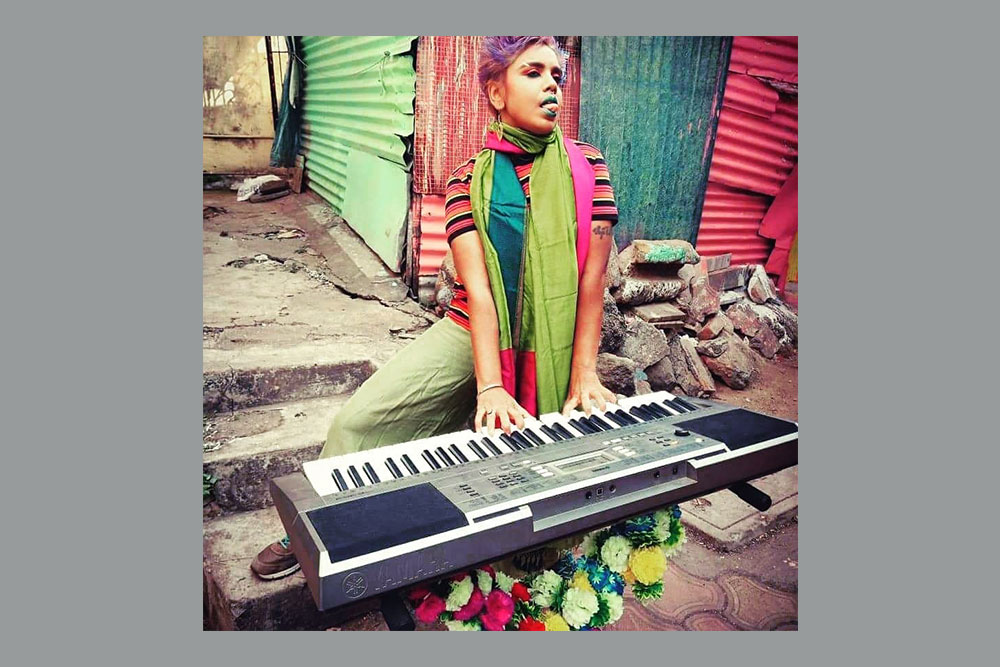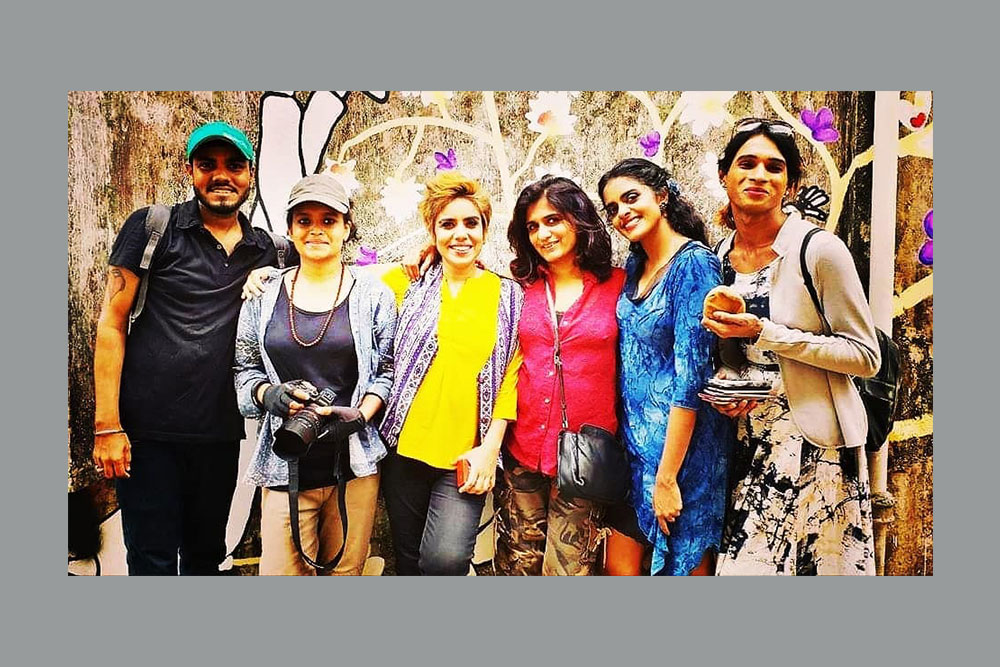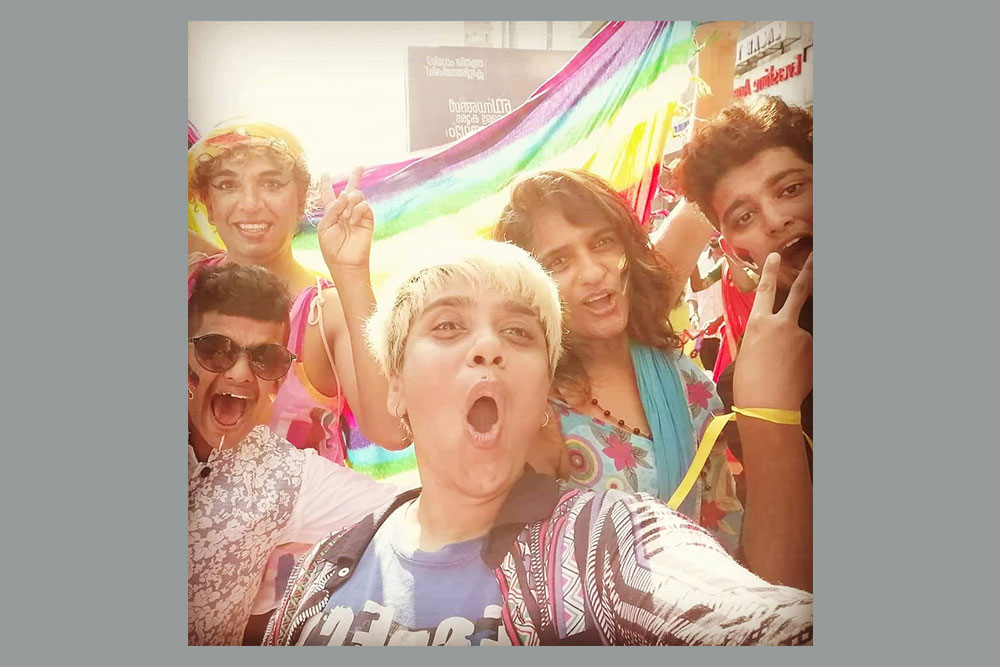In a landmark ruling on September 6, 2018, the Indian Supreme Court decriminalised homosexuality by finally overturning the colonial-era Section 377. This was not just a milestone for the Indian LGBTQIA+ community, who have been marginalised for centuries on the basis of their sexual orientation, but for all those who believe in the all-embracing power of love, and in equal rights for all.
Exactly a year after this momentous victory, Pragya Pallavi—a multi-genre independent artist who proudly identifies as a gender-fluid lesbian—made history by releasing her album, Queerism. This was India’s first “for LGBTQIA+” album, consisting of nine songs, written and composed by Pallavi around themes that not only resonate with the LGBTQIA+ community, but also with women across the country.

Image courtesy: Instagram/pragya.pallavi
“I wanted to create something different, meaningful, and powerful,” Pallavi explained during an exclusive interview. With everything from her own experiences to issues like social justice, queer rights, suicide prevention, love, and feminism at its core, the album is powerful indeed. Here’s what Pallavi wants you to know about her music, the LGBTQIA+ community of India, and the true meaning of freedom to love and live the way you are.
Music as a way of life
“Being a woman, being gay, and being an indie artist—these are all identities which usually face a lot of discrimination,” Pallavi says, highlighting the fact that making her album without the backing of a big music label was not easy, but it was made possible with the support of those around her. What drives her, as it does many independent artists around the world, is her passion for music. “Music is a source of relief for me,” she explains. “It helps me personally, to deal with and express my emotions. Having music with me always makes me feel more free, independent, and confident. My journey as a gender-fluid lesbian, and as a woman, has been a very big part of my life; music has helped me share my experiences and journey artistically.”
But this journey, she explains, hasn’t been only her own, and she hopes more LGBTQIA+ musicians emerge in India and the world to share their stories as well. “People need more role models,” she says. “They need to have more art and music that talks about their experiences. There have been many pop stars who have been gay or queer, but they haven’t actually written music about themselves.” She points out that Freddie Mercury, who was an incredible icon, South Asian and queer, was never out about his sexuality. Even George Michael and Ricky Martin weren't out for the longest time, not until they had already made it in the music industry. Their music was mostly about heterosexual relationships.

Image courtesy: Instagram/pragya.pallavi
Why embracing your identity matters
“There should be more songs you can sing for Pride, or for your same-sex lover, or songs about who you truly are, your beauty and amazingness!” Pallavi says, hailing the rise of artists like Janelle Monae, Lil Nas X, and Big Freedia, who are all embracing their individuality and writing about it too. And the same acceptance of who you are and expressing what you stand for, she says, is vital for everyone. There are many layers to each identity, and words or labels that describe who you are can be freeing indeed.
“I think having more languages or words to describe yourself is a really awesome thing,” she says. She explains how even though she identifies as a woman, she has certain aspects of her identity which couldn’t be described with one label or term—until she found “gender fluid”, a term that fit her identity perfectly. “I don’t think these labels are less freeing in any way. I think it’s more freeing because it gives you different ways to express yourself,” she says, adding that it’s equally important to remember that these labels be fluid instead of boxes or categories to fit people into.

Image courtesy: Instagram/pragya.pallavi
“There is no formula, so when I say I’m a gender-fluid person, I don’t have to be like A, B, or C,” she explains further. She also picks up on the nuance of fluidity that many people, no matter what their sexual or other identity, miss out on. “For me, being a gender-fluid lesbian is a very good fit right now, but I don’t know, maybe I’ll describe myself as something different as I change over the years. It’s all about the freedom to explore your fluidity!”
Queer and free to love in India
And this freedom, she says, has been quite hard-earned for the LGBTQIA+ community in India. Pallavi highlights the fact that homosexuality has always existed in India, but the decriminalisation of Section 377 opens up new avenues to claim equal rights. “Now, the law gives us more strength to stand up for our rights, and access further rights in terms of relationships, marriage, adoption, where we can live, and what work we can do,” she insists. “It gives us a tool that we can fight with to get equal rights for all.”

Image courtesy: Instagram/pragya.pallavi
Continuing the movement to ensure the rights of the LGBTQIA+ community is crucial, she says, because despite the decriminalisation, what really needs to change is the mindset and culture of people. “I know we talk about our struggles sometimes, but it’s not something to feel sorry about us for,” she insists. “I’m really proud of my identity. It has given me a lot of joy, happiness, and confidence. I feel LGBTQIA+ people are really proud of who they are. And it’s good to respect people who are a bit different from you,” she says.
“If you have LGBTQ people in your life, you should try to support them against any prejudice and homophobia,” she adds. “And if you don’t have any LGBTQ people in your life, I hope you get to know them. You can be the person who is willing to accept something different, or is willing to make space for another person. Make them feel comfortable, ease their problems, make them feel it’s okay, it’s going to be all right. And if you have prejudices against LGBTQIA+ communities, please try to examine yourself and try to think about where they might be coming from. That would be a very good beginning.”